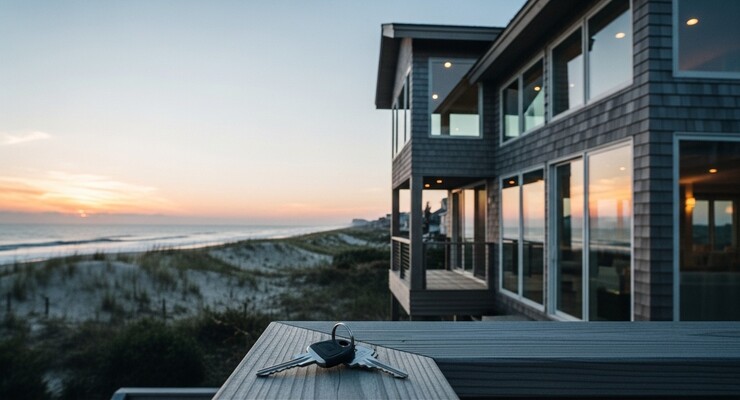Virginia Beach has a clear set of rules for short-term rentals (STRs), properties rented for less than 30 consecutive days, like those on Airbnb and Vrbo. These regulations ensure rentals are safe, responsible, and don’t disrupt local neighborhoods.
Like many other coastal cities, including nearby Portsmouth and Newport News, Virginia Beach has established these guidelines to balance a thriving tourism scene with the quality of life for full-time residents. Knowing the rules is the key to a smooth experience, whether you’re a host or a guest.
For Property Owners: Your Key Responsibilities
If you’re thinking about listing your property, you can’t just post it online and start accepting guests. The city has several requirements you MUST meet to operate legally. These steps are mandatory and help ensure your property is safe and compliant.
Key obligations for all STR hosts in Virginia Beach include:
- Zoning Compliance: Your property must be in a zoning district that permits short-term rentals. Many residential areas require properties to be within the Short-Term Rental Overlay District to be eligible.
- Annual Registration and Permit: You must register your STR with the Commissioner of the Revenue’s office each year and obtain a city-issued permit.
- Safety Inspection: Your property is required to pass a safety inspection to verify it has essential safety features like working smoke detectors, carbon monoxide detectors, and a fire extinguisher.
- Tax Collection: You are responsible for collecting and remitting all applicable city and state taxes, including the Transient Occupancy Tax.
- Good Neighbor Policies: You must provide adequate off-street parking for your guests and post contact information for a responsible person who can be reached 24/7 to resolve any issues.
Navigating these rules can be complex, and some property owners consult a landlord lawyer to ensure their rental agreements and operations are fully compliant with city ordinances and the Virginia Residential Landlord and Tenant Act.
For Travelers: What to Look For in a Legitimate Rental
Choosing a rental that follows the rules gives you peace of mind as a visitor. A compliant rental is far more likely to be safe, well-maintained, and professionally managed, protecting you from potential scams or last-minute cancellations. It also helps you avoid properties that might cause problems for the neighborhood, such as party houses that have become an issue in other vacation spots.
Here’s a quick guide to help you tell the difference between a compliant rental and one that might be cutting corners:
| Feature | Compliant Rental | Potentially Non-Compliant Rental |
| City Registration | Often displays a city-issued permit or registration number in the listing. | No permit number is mentioned, and the owner may be evasive if asked. |
| Safety Features | The listing clearly mentions essential safety equipment like smoke/CO detectors and fire extinguishers. | Vague or missing information on critical safety features. |
| Clear House Rules | Provides specific rules on maximum occupancy, parking, and noise to ensure a peaceful stay. | Rules are unclear, or the listing seems to encourage large, disruptive gatherings. |
| Local Contact | A local contact is available 24/7 to handle emergencies or issues that arise during your stay. | No local contact is provided, or the owner is unresponsive and difficult to reach. |
Choosing a registered rental helps ensure your vacation goes as planned. If you have concerns about general safety, this article on crime in Virginia Beach can provide additional context.
By understanding and respecting these guidelines, hosts and guests can contribute to a positive and safe experience for everyone in Virginia Beach.

















